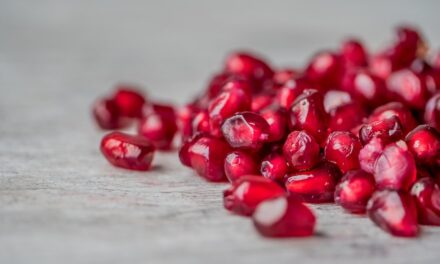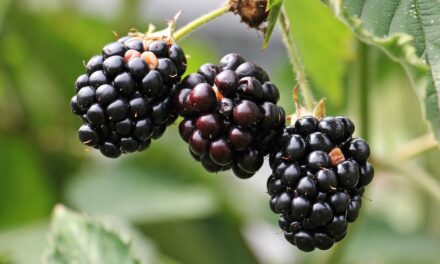
Health Benefits of Eating Peach

6 Health Benefits of Eating Peach: Peach Nutritional Information-2023)
Peach, scientific name Prunus persica – are small, delicious fruits with a fuzzy peel and a sweet white or yellow flesh.
They are believed to have originated in China thousands of years ago.
Peaches are comparable to plums, cherries, and almonds. They are classified as drupes or stone fruits because their flesh is enclosed by a shell that contains edible seeds.
What’s more, peaches are nutrient dense and may provide a variety of health benefits, including improved digestion, smoother skin, and allergy relief.
Now a question arises:
Is it good to eat a peach daily?
Regular consumption of peaches may help promote heart health and lower the risk of heart diseases, such as high blood pressure and cholesterol levels.
So, without further ado, let’s get started.
Here are six scientifically proven health benefits of eating peaches that you should know!
Benefits of Eating Peaches:
Experts claim that consuming peaches every day could help enhance your health in the following ways:
- Packed with essential nutrients
- May assist digestion
- Help improve heart health
- Peaches help protect your skin
- May prevent certain types of cancer
- Keep your bones healthy
1. Packed with essential nutrients:
Peach are rich in several vitamins, minerals, and other beneficial plant compounds.
One medium-sized peach contains approximately
- Calories: 58
- Protein: 1 gram
- Fat: less than 1 gram
- Carbs: 14 grams
- Fiber: 2 grams
- Vitamin C: 17%
- Vitamin A: 10%
- Potassium: 8%
Peaches also provide a lesser amount of magnesium, phosphorus, iron, and some vitamins.
They’re packed with healthy antioxidants—beneficial plant compounds that fight oxidative damage and help preserve your body from diseases, including aging. The more antioxidants a fruit contains, the fresher and riper it is.
What’s more, juice from pure peach indicated antioxidant actions in healthy humans within 30 minutes of consumption.
Now a question arises:
Are fresh peaches healthy?
Peaches are a super healthy addition to your diet. They’re also low in calories —- just 60% calories in each cup — and they’re a great source of fiber, potassium and vitamin A and C.
Based on this observation, I don’t believe any more explanation is necessary to determine whether or not peaches are beneficial.
Summary
Peaches are rich in vitamins and minerals and contain beneficial plant compounds such as antioxidants, which can help protect your body from diseases.
2. May assist digestion:
Peaches may help with digestion.
One medium sized fruit contains about 2 grams of fiber, approximately half of which is fiber, while the remaining half is insoluble.
Insoluble fiber expands your bowels and helps in the movement of food through your digestive tract, relieving constipation.
What’s more, soluble fiber also provides food for essential bacteria in your intestines. These bacteria produce short-chain fatty acids.
Short chain fatty acids in your gut may also help reduce inflammation and enhance symptoms of digestive ailments such as chronic disease.
Now a question arises:
Can peaches upset the stomach?
Peaches. It’s a genuine joy to bite into one that’s juicy and ripe, but the sweetness on the inside can potentially induce stomach issues.
Summary
Peaches contain essential nutrients which contribute to smooth digestion and a lower risk of stomach disorders.
3. Help improve heart health:
Regularly eating fruit—such as peaches—may boost heart health.
Peaches may lower risk factors for heart disease, including high blood pressure and cholesterol levels.
What’s more, studies suggest that peaches could be connected to bile acids—compounds produced by your liver from cholesterol.
The bound bile acids and cholesterol are excreted through your bowels, which may help reduce your blood cholesterol levels.
Peach juice may also reduce levels of the blood pressure-raising hormone angiotensin in obese rats, according to research.
Now a question arises:
Do peaches help with healing?
Just one medium peach has around 11% of your daily vitamin C requirement. This vitamin aids in wound healing and maintains a healthy immune system.
Summary
Peaches contain properties that may help lower heart disease risk factors such as high blood pressure, triglyceride, and cholesterol levels.
However, more research is required!
4. Peaches help protect your skin:
Peaches may offer anti-aging properties that help keep your skin healthy.
Studies have shown that compounds found in peaches may boost your skin’s ability to retain moisture — thus enhancing skin health.
What’s more, both test-tube and animal research shows that extracts from peach blooms or flesh applied directly to the skin may help prevent UV damage.
Peach flower extracts were also proven to slow the growth of skin cancers in mice.
Now a question arises:
Are peaches good for your hair?
The best fruit for hair regrowth is peach.
Biotin is a natural hair growth steroid found in peaches that promotes hair development. It also keeps the scalp healthy and the hair strong.
Summary
Peach flowers may help keep your skin healthy by maintaining moisture and preventing sun damage.
However, more research is required!
5. May prevent certain types of cancer:
Consumption of fruits such as peaches that are high in vitamin A, are recognised to provide protection from lung and oral cancers.
They contain several essential minerals such as potassium, fluoride, and iron.
Potassium is a substance that can be found in cells and body fluids and helps regulate heart rate and blood pressure.
What’s more, peaches are high in polyphenols, a kind of antioxidant that has been proven in laboratory experiments to prevent the growth and spread of cancer cells.
Peach polyphenols may have the capacity to destroy malignant cells while causing no harm to healthy cells.
Now a question arises:
Do peaches prevent breast cancer?
Fruits, particularly peach, apple, pear, and grapes, have been demonstrated to protect against breast cancer.
Summary
Peach compounds may provide some cancer protection by reducing the creation, growth, and spread of malignant cells.
More research is required!
6. Keep your bones healthy:
Peaches are rich in protein boosting nutrients and antioxidants, which help strengthen the bones.
They also contain important minerals, including calcium, phosphorus, and vitamin C, that help keep your bones healthy.
What’s more, potassium can help out the effects of a diet rich in salt. It may also lower your blood pressure along with your symptoms of kidney stones and bone loss.
Now a question arises:
What is the best time to eat peaches?
If the peach is hard to the touch, it’s not mature.
When gently squeezed, it should have some “give.” Pushing too hard will result in damage! The hue of a ripe peach is a dark yellow.
Moreover, the best time to eat peaches is in the summer.
Summary
Peaches are packed with nutrients like vitamins A and C, potassium, and fiber. All of these play an essential role in keeping your bones healthy and strong.
Peach Nutritional Information:
Looking for a healthy snack to keep you satisfied? Look no further than peaches. They’re delicious, nutritious, and packed with vitamins and minerals.
Peaches are the best fruits to eat if one wants to improve their health. But without knowing the nutritional information of the fruit you like to eat, this may harm your health and cause certain diseases.
So, it’s important to understand the nutritional facts of the fruit in order to make yourself healthy.
Let’s get started!
- Calories: 50
- Fat: 0.5 grams
- Cholesterol and sodium: 0 grams
- Carbohydrates: 15 grams
- Sugar: 13 grams
- Fiber: 2 grams
- Protein: 1 gram
The Bottom Line:
Peaches include a lot of vitamins, minerals, and phytochemicals that are good for you.
They’re simple to incorporate into a number of dishes and may provide significant health benefits like clearer skin, reducing allergy symptoms, better digestion, and heart health.
Peaches may also increase immunity, fight against toxins, and reduce blood sugar levels, in addition to being associated with a lower risk of some malignancies.
Overall, it’s a fruit worth including in your diet.
I hope this article is useful to everyone, especially those who are concerned about their health. Thank you for taking the time to read this article!






